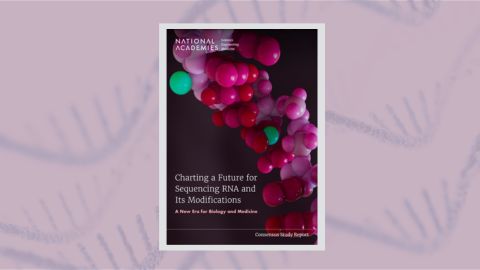ASBMB supports White House move toward open access
The American Society for Biochemistry and Molecular Biology last week released a statement in support of the White House Office of Science and Technology Policy’s Aug. 25 memorandum requiring federal agencies to make publicly accessible, without an embargo, all publications and supporting data resulting from federally funded research.
In its statement, the society, which publishes three open-access journals, emphasized that the transition will be both complicated and costly for publishers and that lawmakers need to ensure that scientists won’t take a financial hit.
Stephen Miller, executive director of the society, said: “While making research publicly accessible is essential for scientific advancement and the right thing to do, it requires a complete overhaul of publishing systems, processes and business models. ASBMB journals have been ‘gold’ open access for almost two years now. It has been a costly and complicated transition, but we are committed to always innovating to meet the needs of the community.”
The society noted that some publishers already have high price tags for processing open-access articles and that others are likely to raise their prices too. For example, while ASBMB journals charge only $2,000 for members and $2,500 for nonmembers, the journal Nature charges more than $11,000.
Meanwhile, the cost of doing science is on the rise.
The ASBMB wrote: “Scientists are struggling to keep their labs running; graduate students and postdoctoral researchers need a livable wage; and lab supplies are becoming more expensive. Meanwhile, federal grants have only half of the spending power they had 20 years ago. Open access places another financial burden on scientists. Policymakers must address this challenge.”
The OSTP memo retracts prior guidance during the Obama administration that gave agencies discretion to allow a 12-month embargo of peer-reviewed publications. The ASBMB made its three peer-reviewed journals — the Journal of Biological Chemistry, Journal of Lipid Research, and Molecular & Cellular Proteomics — fully open access in 2021 after for many years making in-press articles immediately free to the public but embargoing the final, redacted versions.
Another notable change: The OSTP guidance applies to all federal agencies with any research and development expenditures; previously, agencies with R&D expenditures under $100 million were exempt.
The OSTP memorandum states: “Immediate public access to COVID-19 research is a powerful case study on the benefits of delivery research results and data rapidly to the people ... to advance all areas of study, including urgent issues such as cancer, clean energy, economic disparities, and climate change. American investment in such research is essential to the health, economic, prosperity and well-being of the nation. There should be no delay between taxpayers and the returns on their investments in research.”
While open-access policies are a vital step forward in ensuring the equitable accessibility of scientific research, the society urged policymakers to ensure that individual scientists do not end up shouldering the financial burden of these open-access policies.
“Federal grants must grow to accommodate the rising cost of conducting and publishing science,” the society wrote.
Enjoy reading ASBMB Today?
Become a member to receive the print edition monthly and the digital edition weekly.
Learn moreGet the latest from ASBMB Today
Enter your email address, and we’ll send you a weekly email with recent articles, interviews and more.
Latest in Policy
Policy highlights or most popular articles

Genetics studies have a diversity problem that researchers struggle to fix
Researchers in South Carolina are trying to build a DNA database to better understand how genetics affects health risks. But they’re struggling to recruit enough Black participants.

National Academies propose initiative to sequence all RNA molecules
Unlocking the epitranscriptome could transform health, medicine, agriculture, energy and national security.

ATP delegates push for improved policies
This ASBMB program helps advocates gain skills to address issues that affect science and scientists.

Advocacy workshops at Discover BMB 2024
Topics include running for office, becoming an advocate, and navigating the grant review process at the NIH.

NIH’s advisory committee releases report on re-envisioning postdoc training
The working group developed six primary recommendations for the National Institutes of Health.

When authoritative sources hold onto bad data
A legal scholar explains the need for government databases to retract information.

